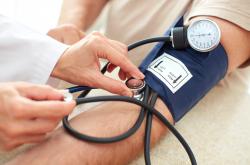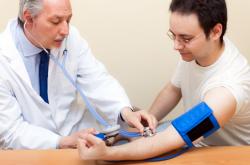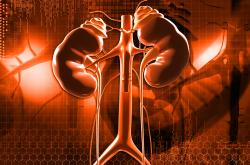Tests For Adrenal Fatigue
It’s really important to know about all the tests for adrenal exhaustion. You may need to consult several doctors before you get a diagnosis and be prepared to ask questions and find out what tests are most useful. There are also some tests which you can do at home.
Getting a diagnosis
Although adrenal fatigue (hypoadrenia) has been written about and treated for more than a hundred years, present-day doctors are not taught about it in medical school. Thus it is not always easy to get a diagnosis and the correct treatment. The current medical mindset only recognizes adrenal failure, as in Addison’s Disease or Cushing’s Disease, but not generally adrenal exhaustion. This is largely probably because of the influence of the pharmaceutical industry which isn’t interested in treating illnesses from a natural standpoint. Although the attitude of many doctors can be frustrating, it is best to know in advance that many of them won’t be prepared to test and treat you for adrenal fatigue.
If you have been under severe stress for a period of time, and are feeling exhausted with lowered resistance to infection, then adrenal fatigue is something that should be ruled out. There are some tests described below that you can do for yourself. Although they do not constitute a diagnosis, nevertheless, the evidence created should enable you to get treatment from a sympathetic and enlightened doctor.
Tests for adrenal fatigue that you can do at home
There are several tests which you can do at home: blood pressure reading, flashlight test and a questionnaire.
Blood pressure
If your blood pressure drops, when you stand up quickly from a lying position, this is an indicator of adrenal fatigue. Check for it by buying or borrowing a blood pressure gauge or cuff. Take your blood pressure when you are lying down quietly. Then get up and take it again. It should rise slightly, but if it falls, a condition called postural hypertension, this is strong pointer that your adrenal glands are under pressure. Make sure you are well-hydrated before the test (a glass of water isn’t enough, you need to take 6 -8 glasses a day) because otherwise you could get a false reading.
Flashlight test (iris contraction test)
You will need:
- A chair
- A dark room with a mirror
- A flashlight
- A watch with a second hand
Sit on the chair opposite the mirror and darken the room. Now shine the flashlight across one eye (not into it). Watch what happens in the mirror to the iris with your other eye.
If this is difficult, you could get a friend to help. The iris should contract immediately and stay contracted. If the iris starts to dilate (open) after the initial contraction, and then contract and dilate for the next few minutes, then this indicates hypoadrenia.
Questionnaire
The above tests are not conclusive, but are indicative that further investigations should be carried out. To get more information about you condition, you might like to go through the following questionnaire. Rate each statement from 0 to 3 (0 means never, 1-2 means occasionally, 3 frequently or severely).
- I tend to drive myself hard.
- I have experienced long periods of stress.
- I have had recurring or extended infections.
- I have taken long term or intense steroid therapy.
- I gain weight easily, especially around the belt.
- I have allergies or chemical sensitivities.
- I suffer from a chronic illness.
- I am not able to think as clearly as I used to.
- I prefer to avoid emotional situations.
- When I am nervous, I shake or get indigestion.
- My sexual drive is decreased.
- I get dizzy when rising from lying or sitting position.
- I often feel fatigued.
- I don’t feel as healthy as I used to.
- Sometimes, I feel weak all over.
- I suffer from frequent headaches.
- The lymph nodes on my neck often get swollen.
- I have troubles getting up in the morning.
- If I don’t eat regularly, I get low energy and mood.
- I get coughs that often last for weeks.
- I am having trouble sleeping or suffer from insomnia.
- I need coffee in the morning to start the day.
- I often crave foods high in sugar and fat.
- I don’t feel well if I skip a meal.
- I frequently experience dermatitis or rashes.
- I have severe PMS symptoms, such as cramps, tender breasts, bloating (question for women only).
- I have constant stress in my life.
- I am not happy in my relationships.
- I have little time for myself.
- I don’t exercise regularly.
This short questionnaire can give you important insight into your condition. The higher the score, the more adrenally compromised you tend to be. You could use the results in several ways:
- Take the results to a doctor who is sympathetic to the concept of hypoadrenia (adrenal exhaustion).
- Use it from time to time to gauge the progress of your recovery.
- Use it to make significant changes in your lifestyle, attitudes and eating patterns.
Please, seeAdrenal fatigueto learn more about the symptoms and effects of low adrenal function.
Medical tests for adrenal exhaustion
Once you have found a reliable doctor in whom you can place your trust, you will probably undergo some or all of the following tests:
Blood test
Blood tests are less reliable than saliva in gauging the level of hypoadrenia (adrenal fatigue) because they don’t indicate what is actually going on at a cellular level.
Saliva test
These are better than either blood or urine in determining the level of cortisol (made by the adrenal glands) actually available in the body.
Urine test
This test is taken over a 24 hour period. It shows the amount of cortisol being excreted by the body but doesn’t provide information about the highs and lows of its production.
DHEA test
This can be done by both blood and urine analysis. Remember that DHEA is an extremely important hormone for the body and when the adrenals are exhausted, levels of it tend to fall.
ACTH challenge test
This test gives a good picture of how the adrenal glands respond to stimulation. A reading is taken, to establish a baseline. Then ACTH (adrenal corticotrophic hormone) is injected. The level should double if the adrenals are working well. If it doesn’t, this might indicate that the adrenals are not responding effectively. However, this test only measures adrenal reserve, not the actual function of the glands.
All these tests have their place, and it may be necessary to do several of them to get a full clinical picture.














.jpg)




Leave a comment